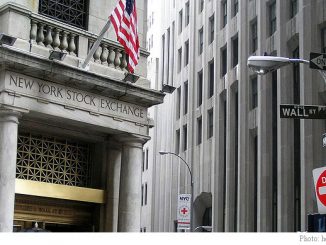Markets are all over the place this morning, gripped by fear as participants try to anticipate each other’s behavior in a fast moving environment. A mid-day rally appears to have been prompted by this:
U.S. stocks rose, erasing an early tumble, amid speculation the European Central Bank was preparing to buy Italian and Spanish bonds to halt the region’s debt crisis.
Skip a paragraph and one finds this:
Stocks erased losses after Reuters said the European Central Bank is pressuring Italy to make further reforms in return for buying Italian and Spanish bonds. Italy’s government will announce plans to speed up state-asset sales, liberalize the labor market and introduce a balanced-budget amendment into the country’s constitution, Sky TG24 reported today, citing unidentified officials.
Really? Really? Clear one of those “beatings will continue until moral improves” sort of things. The history of European-debt crisis is that one economy finds itself under pressure, “help” is offered in return for fiscal austerity, austerity worsens the underlying economic situation and thus the fiscal position, and funding pressures resume.
Apply, rinse, repeat.
It gets better:
The ECB would be willing to buy more bonds of deficit-hit countries once they take “concrete” steps to stabilize their finances, European Central Bank council member Luc Coene said.
“Certainly the ECB is ready to make major efforts to relieve the situation, but first the countries have to take steps,” Coene, head of Belgium’s central bank, told RTBF radio in Brussels today. “It doesn’t make sense to pour water into a bucket with a hole in it.”
It incredibly difficult to stabilize finances in a debt-deflation spiral. The nations of the Eurozone do not have the escape valve of printing their own currencies. They do not have the escape valve of currency depreciation. Indeed, they face the very opposite issue – although market participants increasingly believe the Eurozone will jettison the periphery (and maybe even part of the core), the Euro stays relatively strong. Why? Whatever is left over is certain to be a hard-money union.
These defects set the stage for a debt-deflation spiral. Fiscal austerity only intensifies that spiral – as proven by the ongoing challenges in the Eurozone. Yet that lesson has yet to be learned at the ECB. Using Coene’s analogy above, the ECB is not really pouring water into the buckets as much as punching fresh holes.
ECB rallies have short half-lives; enjoy this one while you can.




Leave a Reply